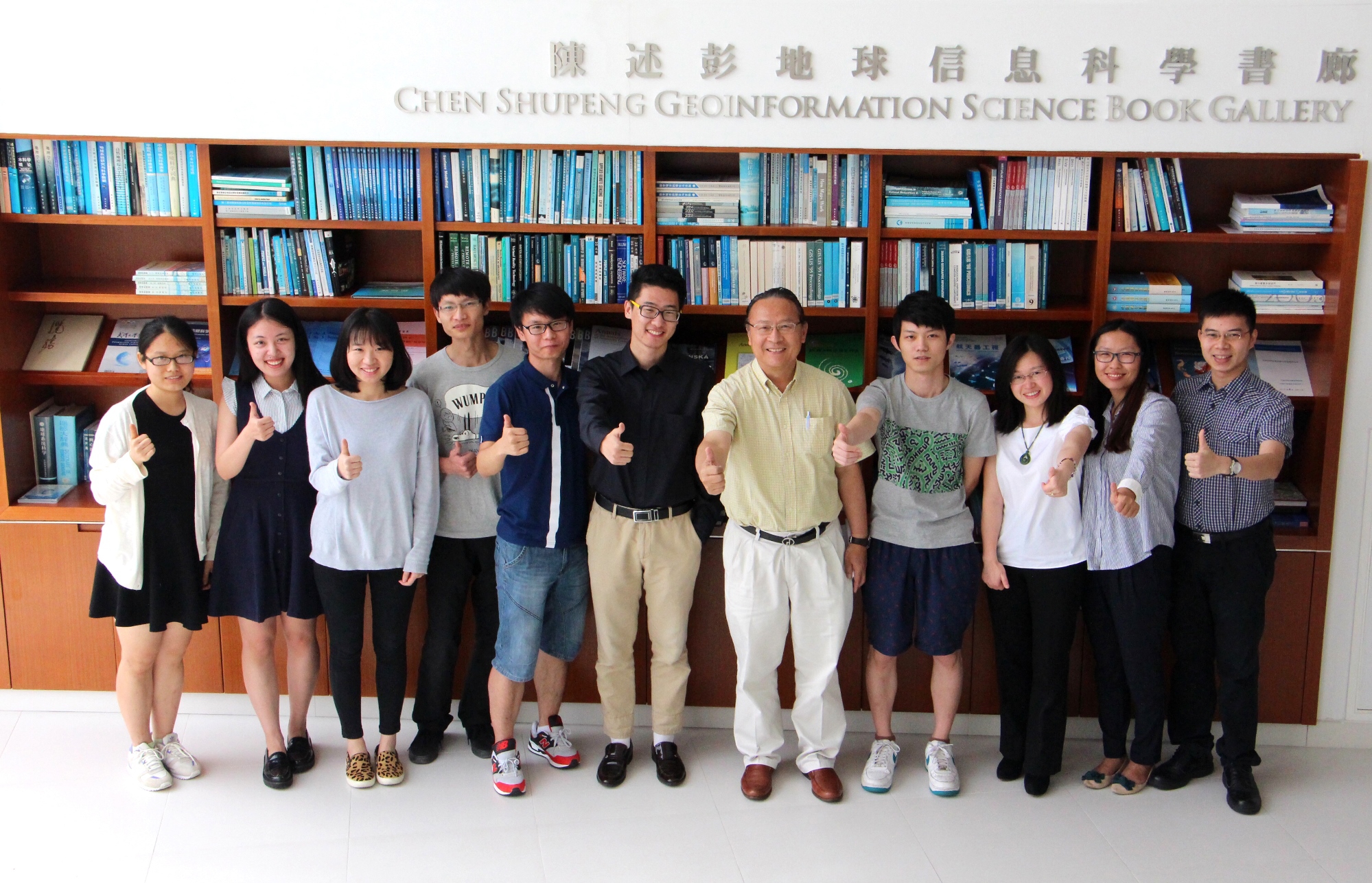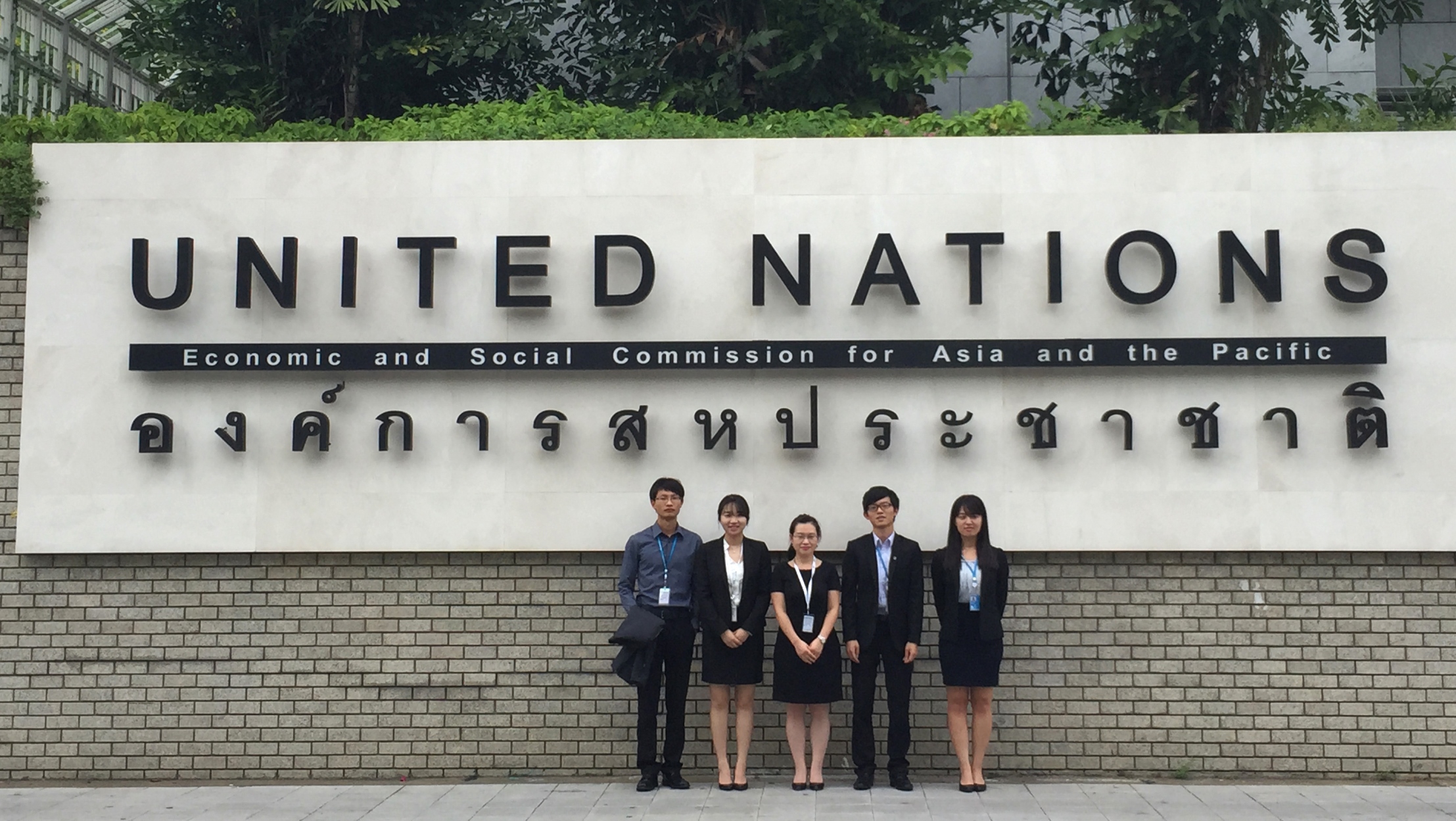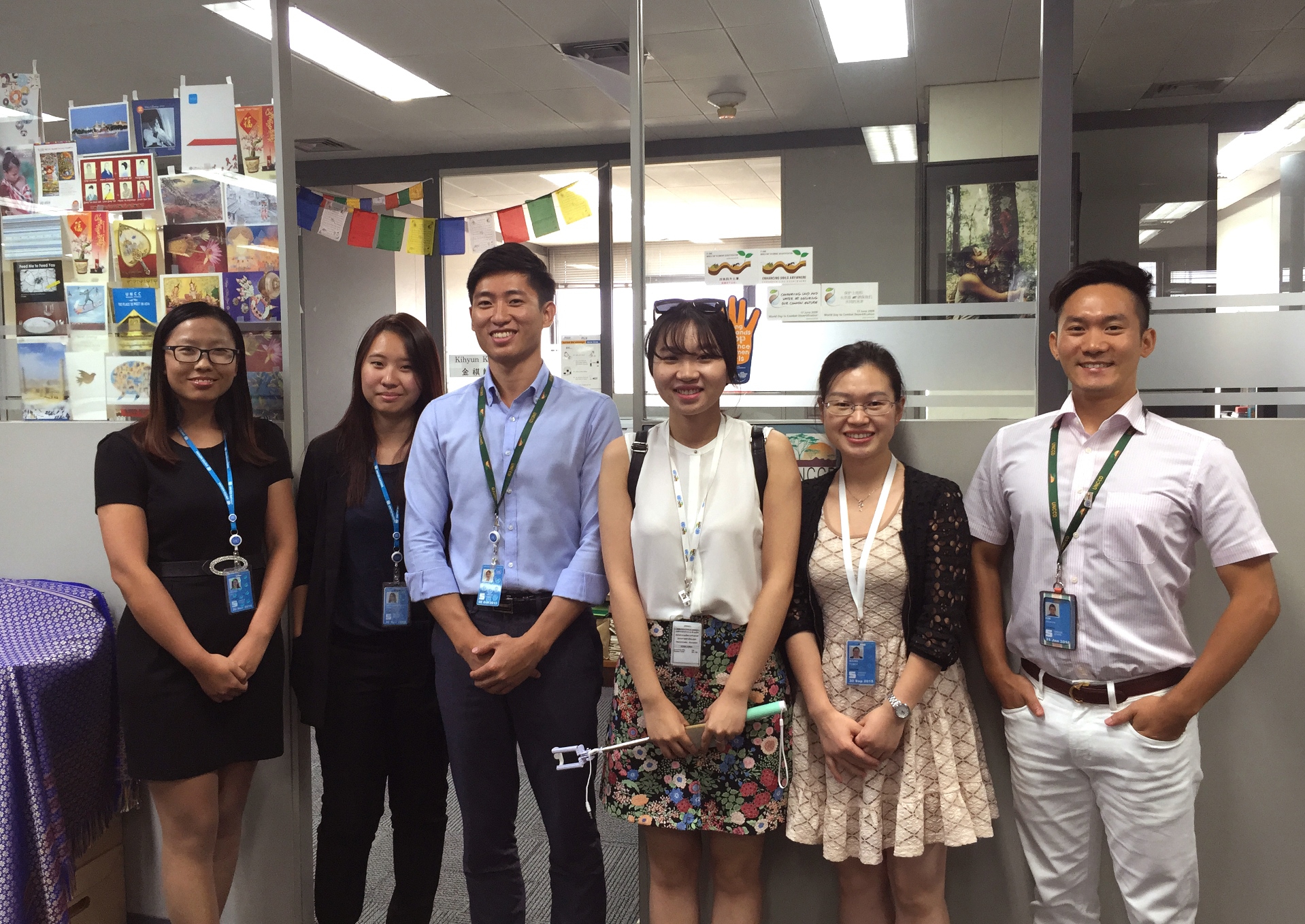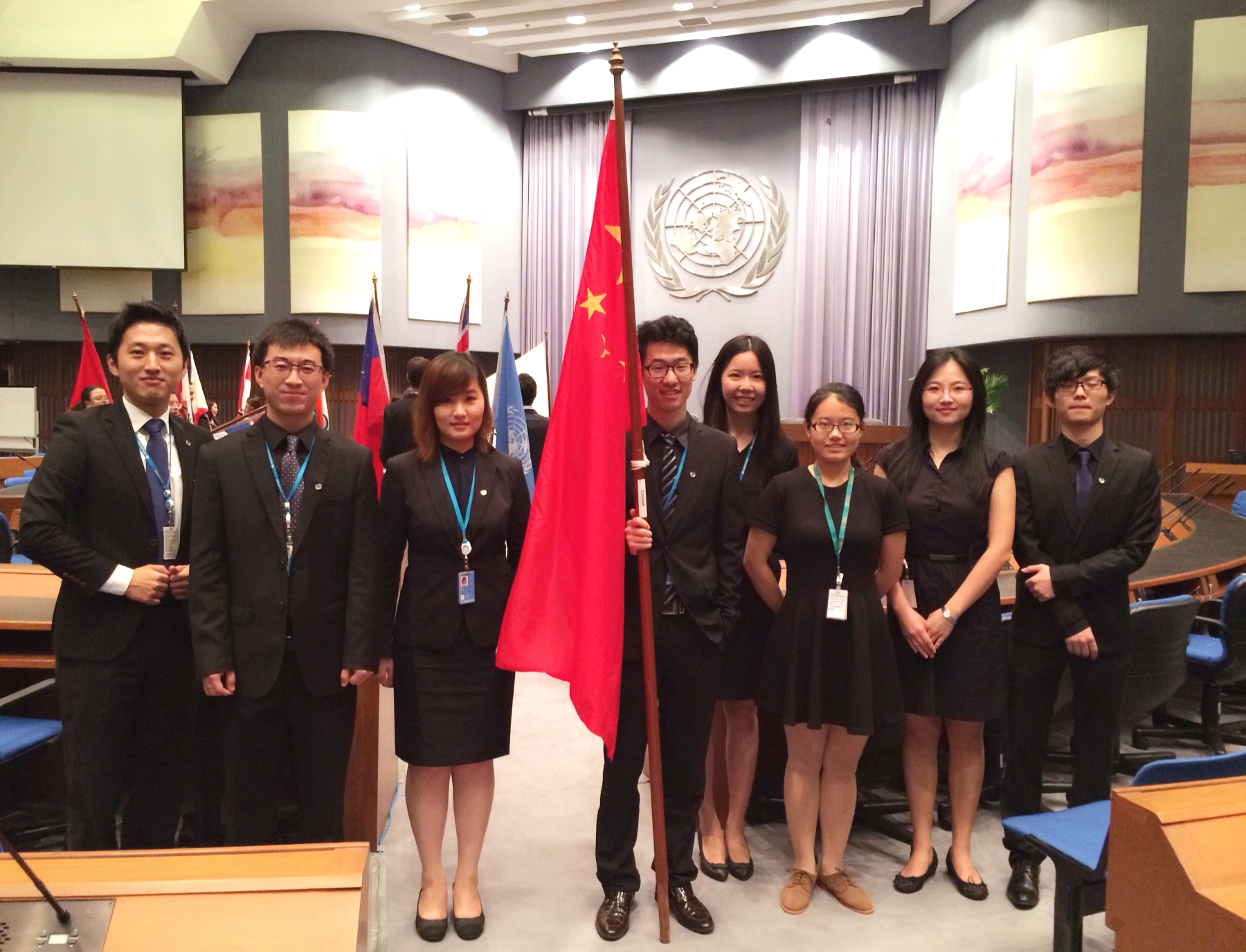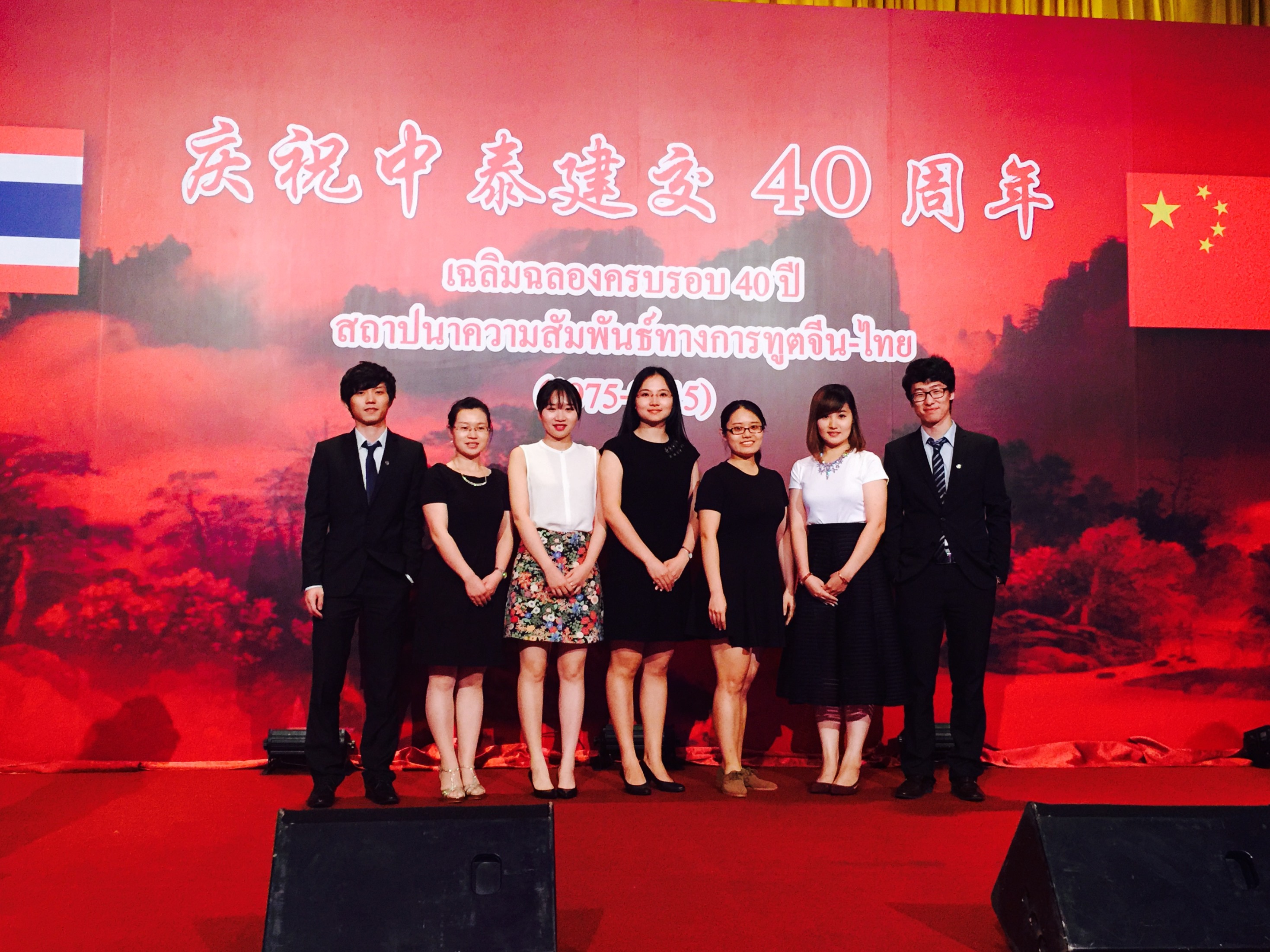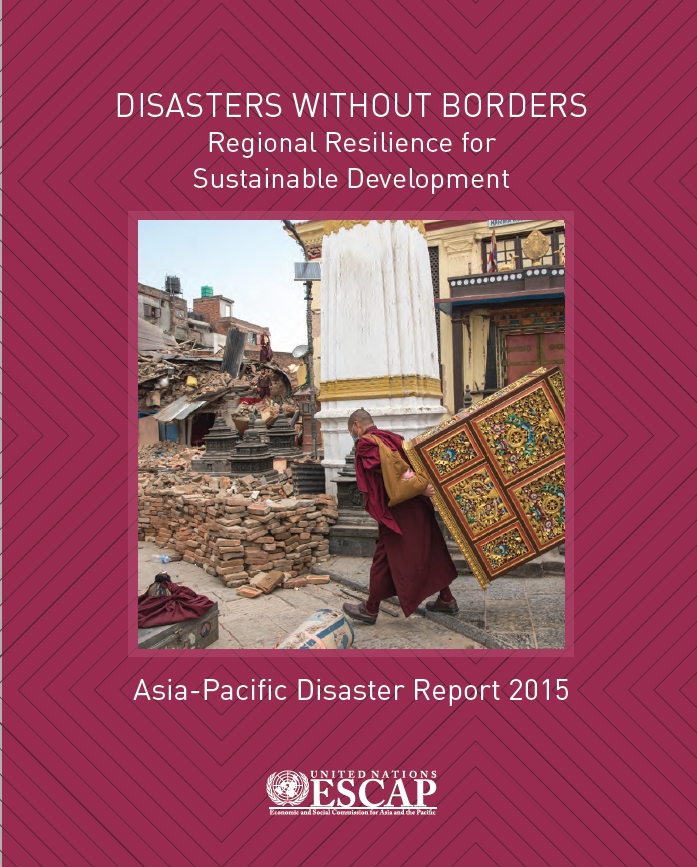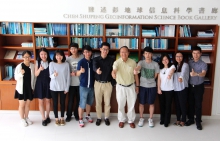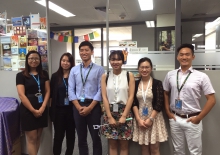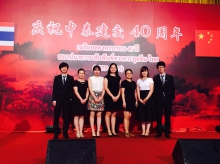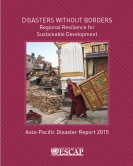CUHK
News Centre
The Third CUHK-UNESCAP Internship Programme Concludes with Success
Concluding recently was the third phase of an internship programme, jointly organized by the Economic and Social Commission for Asia and the Pacific (ESCAP), the Convention to Combat Desertification (CCD) of the United Nations (UN), and the Institute of Space and Earth Information Science (ISEIS) of The Chinese University of Hong Kong (CUHK). Nine CUHK students, including Zeying Li, Chaoyang Du, Weizhen Ding, Mingfeng Liu, Junwen Dai, Hang Wei, Jingxuan Zhai, Dongmei Wang and Ran Wang, successfully completed their internship in ESCAP, Bangkok, Thailand. Part of their work has been included in ESCAP’s 2015 Annual Disaster Report, Disasters Without Borders. CUHK and the names of the interns have been acknowledged.
Prof. Lin Hui, ISEIS director and the coordinator of the UN internship programme, was satisfied with its achievements, which were : 1) the excellent performance of the interns in the UN greatly enhancing CUHK’s international image; 2) ISEIS educational quality being widely recognized through more UN units inviting CUHK ISEIS students to join their internship programmes; 3) the UN internship expanding ISEIS students’ horizon and becoming an unforgettable experience in their lives.
During the internship, the CUHK interns assisted in building a disaster warning and governance system for the Asia-Pacific region and related works for desertification prevention and control for ESCAP and CCD, using their specific knowledge and techniques learned in courses on Earth System Science and National Geo-survey and Public Policy. They were involved in a series of projects including:
1) Monitoring the situation of land cover change in the member countries of ESCAP. They processed the Landsat TM satellite images acquired in 2015 covering Myanmar, Bangladesh, Mongolian, Kyrgyzstan and Kazakhstan, and then compared the classified land cover types with those from the 2010 global land cover project, so as to monitor the changes in land cover such as urban areas, forests, glaciers or bodies of water in ESCAP member countries.
2) Participating in the preparation for the UN 2015 Asia-Pacific Disaster Report, including related material searching and literature reviewing, as well as remote sensing images analyzing and processing. They were mainly considering the area of Nepal, where the damage and reconstruction after the earthquake was monitored and analyzed through remote sensing.
3) Designing the government portal of IDD UNESCAP, and developing the E-Learning Platform and Public Data Sharing Platform. They learnt about and generalized on the geographic information platform construction in various countries of the Asia-Pacific region, and participated in helping build the governmental learning and data sharing web platform for IDD as well as the Gateway website construction, including writing and uploading information collection.
4) Research work on Asia-Pacific regional desertification governance. They collected and reviewed information from related governmental and scientific reports, studied the status and progress of desertification monitoring and control, and wrote literature research reports to contribute to UNESCAP Asia-Pacific disaster report.
5) Other daily routines: participating in the skills training program, attending the ESCAP annual meeting and being in charge of meeting materials distribution and meeting record writing during the meeting period.
The working environment of the United Nations is like a grand stage filled with people from different countries all over the world, from various cultures, backgrounds and working experiences. The ISEIS interns all appreciated this precious opportunity to work in UNESCAP and UNCCD and regarded this as a process of learning, exploring, discovering and breakthrough. They understood that they represented not only themselves, but also their university and their homeland, so they all tried their best to complete the work that was allocated to them which, finally, was strongly affirmed by the UN advisers from their working department.
Since 2013, three phases of the internship program have been carried out by ISEIS and UNESCAP, cooperating with UNCCD in 2015 for the first time. This post-graduate internship program gets support from the institute and the University as well as non-governmental funding. Moreover, this internship programme has been strongly supported by Hong Kong Shun Lung Yan Chak Foundation since 2013.
CUHK interns are invited to the reception of the 40th anniversary of Sino-Thai diplomatic relations.


